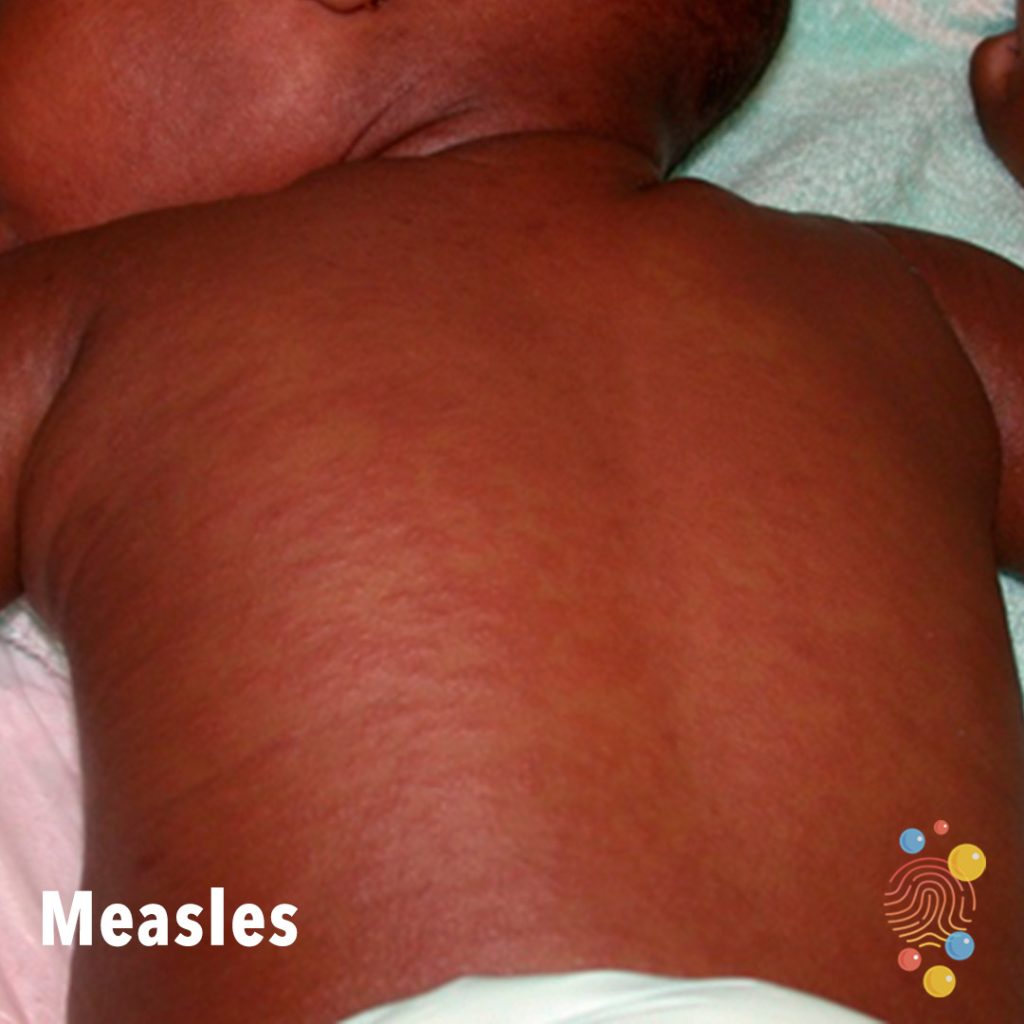Measles outbreak – what can you do?
Healthcare professionals are worried about the current rapid rise in cases of measles. Measles is spread very quickly and can cause serious (even life-threatening) symptoms in babies, young children and in unborn babies. The National Health Service (NHS) is encouraging children to be vaccinated as soon as possible if they have not already received two doses of vaccine. This will protect your child from measles and also help to stop the virus from spreading.
What is measles?
- Measles is caused by a virus. The virus is spread very easily from person to person in the air and through coughing and sneezing.
- The infection starts with cold-like symptoms, such as a high temperature (fever), runny nose and red, watery eyes.
- Children may also get small white spots inside the cheeks. These symptoms are followed by an itchy rash of red-brown spots that usually starts on the face and the spreads across the body. It can last 5–6 days.
- The virus can be spread to other people for a few days before symptoms appear.
- You can read more about symptoms and see pictures here.
- The rash looks brown or red on white skin but it may be harder to see on brown and black skin.

Why are health professionals worried about measles?
- While most children are poorly for a few days, there is a risk of measles spreading through the body and infecting the lungs (pneumonia) or brain (meningitis) which can be life-threatening.
- It may also damage the hearing or sight.
- Measles can also cause serious harm to unborn babies if pregnant women who have not been vaccinated come into contact with someone who has measles.
- Babies, young children and those with a weakened immune system are particularly at risk of more serious infection if they have not been vaccinated.
What should I do?
- Children who have already received two doses of vaccine against measles are protected against the illness. This is usually given as the MMR vaccine at about 12 months of age, with a second dose at 3 years, 4 months.
- However, the number of children who have been vaccinated has decreased in recent years, which is why the number of measles cases has been increasing.
- If your child has not been fully vaccinated, contact your family health centre as soon as possible.
- Vaccinations by the NHS are free of charge. You can read more about vaccinations in the UK here.
- The UK Department of Health explains what to do if you think your child has measles, and whether they can go to school. You can read this advice here.
